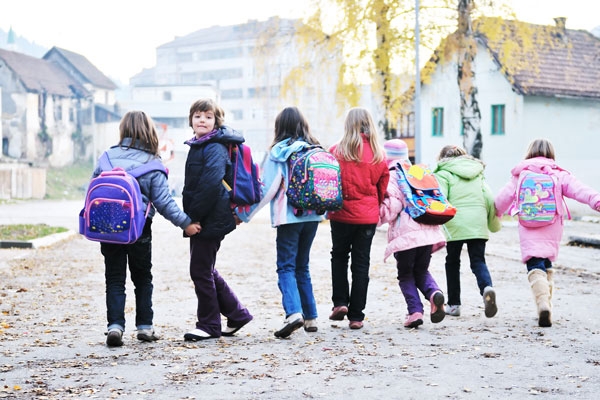
As children develop and grow, different aspects of their physical, psychological, emotional and social functioning needs development. This has been researched by cognitive psychologists, which also use findings to develop various types of therapies for children. An important factor in parenting is to help your child reach his/her full potential. It's necessary to recognize the child's developmental needs and abilities. To be effective, after school programs should support children with tasks they must accomplish during each stage of development.
A child's growth curve can be divided into three main parts:
The four main domains of development are:
Each of these domains need to be separately attended to during the various phases of a child's growth. After school programs should concentrate on developing each area as applicable to the age of the child.
Although the children participating in these programs may have similar developmental needs and age, do not expect development to be uniform. Developmental research over the past 60 years has shown that children will develop as and when they are ready.
1. Physical Domain:
When children are young, they want to perfect skills they have just learned to control. A variety of movements such as jumping, catching and throwing delight them. The middle school child, on the other hand, wants to learn more complex skills and get involved in team sports. This is also when they start understanding that certain things have rules. It therefore the best time to teach them about rules and discipline in sport. The older school child is ready for more adult-like activities that need greater structure and discipline, like dancing, gymnastics, music classes etc.
Ways to Support Your Child In School
2. Social Domain:
Young children are observing others and will be interested in games where they play the roles of family members. They develop short-term friendships and need an adult's presence to assure them. The middle school child is intrigued by society and will love trips to factories, public buildings etc. They want to know the 'how' and 'why' of things. The older school child is ready to learn about different cultures, food and customs. They want to do some amount of social work too. film izle
3. Intellectual Domain:
Young school children will practice what they are learning. Middle school children want to learn more skills and will show interest in reading, drama and problem solving. The older school children are ready to research and probe. Some enjoy puzzles.
4.The Emotional Domain:
Young children develop very quickly and understand other people's emotional state. It is good to encourage them to think about how others may feel. This will apply to both middle school children and older children who need to be encouraged in social situations to develop their emotional intelligence.
Ways to Nurture Your Child's Self Concept
After school programs need to address the interests of the children depending on his/her age and try to support their development in one of the main areas. It is important for parents and educators to select age appropriate activities for their children.